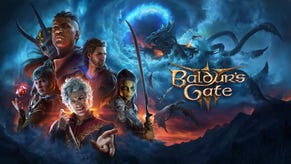Maximum safety, minimum cost: How to launch your game on a new platform
Focusing on the Epic Games Store, Reto Moto's Jean-Marc Broyer dives into launching a PC game on a new platform
While Steam has long been the go-to home for the PC player base, the proliferation of other platforms, notably the Epic Games Store, has encouraged developers to think beyond Valve's offering as their PC platform of choice.
But, as seems to be the case with many aspects of game development, launching on a new platform is no small feat, and no surefire route to success, either. On paper, a new platform provides the opportunity to attract new players, and all the benefits that would entail.
However, the launch process is also cost intensive, time intensive, and the promise of thousands of players eagerly awaiting your arrival when all is said and done isn't exactly a guarantee. It's risky, and for smaller studios in particular, their size and resources -- or lack thereof -- only amplifies that risk.
Overall, the question has to be asked: do the benefits outweigh the risks?
To bare metal or not to bare metal?
Launching any game, at any time, is difficult, but launching a large-scale multiplayer game -- in the midst of a global pandemic no less -- brings with it unique challenges. At Reto Moto, we originally launched Heroes and Generals back in 2016. Since then, our team and player base have both grown, but preparing for launch on the Epic Games Store would present issues with platform integration, hosting, marketing -- or remarketing, in this case -- adhering to new store regulations, coordinating collaboration between our teams, and much more.
Launching your existing game on a new platform could set you back anywhere from three to six months
Taking everything into account, launching your existing game on a new platform could set you back anywhere from three to six months -- hardly a small task.
Focusing firstly on the technical side of things, one of the main challenges when launching on a new platform is preparing yourself for a potential influx of new players. Ensuring that you can scale up reliably and on demand, while also being able to deliver a low-latency gameplay experience to a global player base, is one of the main priorities for any multiplayer games developer.
Up until this point, we'd been hosting and manually managing our game on bare metal game servers via up to six server providers. Unlike a shared solution, bare metal servers are physical servers that are occupied by one tenant (us, in this case) and they're typically good for minimising latency, while also being highly customisable, meaning we could optimise them based on our needs. They also have the advantage of having the operating system installed directly on the server, which makes things easier to manage and delivers a better performance all round.
Unfortunately, given that they've only one user, bare metal servers can also be expensive, and that's where forecasting becomes key. We'd forecasted a large increase in our player base -- especially on day one -- due to launching on a new platform.

However, the forecasting in and of itself is a challenge. At the time, the Epic Games Store had never taken a free-to-play game already released on Steam, as was the case with Heroes and Generals, so there wasn't much data to act as guidance.
Would we see an influx of 10,000 new players? 100,000? None at all? Would we go beyond even the most optimistic of expectations? If that was to be the case, how would we cope? Forecasts can always be wrong, even if it's to a small extent, but whether that's a pleasant surprise or a grave miscalculation, the developer stands to lose either way.
Reach unexpected heights, and you'll likely be in a position where thousands of players will be greeted by error messages -- a temporary annoyance, but not exactly the best first impression. Overestimate your audience, however, and you'll be paying for servers that serve no purpose.
Overestimate your audience and you'll be paying for servers that serve no purpose
With this in mind, we partnered with Zeuz, who were able to provide a flexible and cost-efficient hosting setup that would ensure that the game could scale to meet high demand, without compromising on quality.
We moved from solely relying on bare metal servers to a Hybrid Cloud Hosting solution, which enabled us to scale responsively and dynamically with low latency. For example, when our player count was low, the game would be hosted on bare metal, with the cloud only deployed when we saw a spike in demand. Meanwhile, we were able to take advantage of the cloud hosting's various worldwide locations to host games closer to players and deliver lower latency. This hybrid solution ultimately reduced our hosting costs by up to 50%.
Working with our partners, we also built a test hosting environment to duplicate the live game stack. Essentially, this was a cloud-hosted mirror of the existing backend, which enabled both scale tests and playtests that, critically, allowed us to test in an environment that wouldn't have any adverse impact on the live play experience.
With a forecasted surge in demand on launch day, we pushed the game's scale threshold to twice the capacity we'd forecasted for in our testing, ensuring we were equipped for even the worst (or perhaps best) case scenario. This testing environment is actually something that we've kept running, just so we can safely experiment new features and scenarios moving forward.

Store prep and remarketing
As with any platform, the Epic Games Store brings with it its own rules and regulations. For example, cross-play is a mandatory requirement: no cross-play, no launch.
You'll also have to take into account any regulations in the territories you'll want to launch in. Releasing your game in South Korea, to name one example, will mandate an age rating from the Game Rating and Administration Committee -- a process that could add as much as a month's delay, depending on the integration required.
Speaking of global, you'll also have to consider localising all of the various assets and texts on the store page. You'll also have to factor in additional preparation time if you're planning on selling Season Passes or downloadable content via the store.
Simultaneously catering to your existing player base and introducing the same game to a [new] audience is a delicate balancing act
Of course, as with any game launch, timing is key, too. Knowing which games are launching before or after you is a combination of luck and industry know-how, and it's a little trickier when you're marketing a game that's already been, well, marketed. Though, that doesn't necessarily mean you have to go it alone. The Epic Games Store can be a formidable partner, providing your title with visibility to millions of players, both during and post-launch.
Community management and garnering media coverage also comes with its own challenges; simultaneously catering to your existing player base and introducing the same game to an audience that may only be discovering it for the first time is a delicate balancing act.
Each game is different, with its own audience and ecosystem of players, so focus on what makes your game new. Given that the Epic Games Store is still in its relative infancy, you might be one of the first free-to-play titles in a certain genre or of a certain style to launch on the store -- despite being released elsewhere, your game is brand new for thousands of potential players.
Fail to prepare, prepare to fail
Moving away from the technical side of things, one of the biggest challenges of any launch is, in fact, organisational. Heightened by the adoption of remote working, collaboration across multiple locations brings with it logistical challenges that a lot of studios -- smaller studios in particular -- weren't in a position to consider or prepare for just a handful of months ago. It's a situation we're all adapting to, especially global teams who have staff operating in different timezones, which adds its own delay.
While you've doubtless encountered several articles in the past nine months on the importance of establishing effective ways of working together remotely, it's really not something that can be understated. Ensuring that each key stakeholder understands their tasks, and creating collaborative work streams and a clear roadmap to launch, is arguably as important as any backend solution.

Something as simple as a regular catch-up meeting could make a fundamental difference to the success of any project. For example, if we needed a new feature on our platform, it's something we were able to communicate quickly throughout the course of the project.
Establishing clear communications channels enables everybody to quickly identify minor issues before they escalate -- in what is an already complex process, any and all time saved is priceless.
In summary
At the best of times, launching a video game is challenging, time consuming, and expensive. While there's no one-size-fits-all solution, sticking to a few key principles will help aid an otherwise turbulent process:
- Choose the right technology(ies) for long-term success: with very high (or very low) player numbers a possibility, choose the most appropriate solutions -- that won't cost the earth -- for a smooth launch (and beyond)
- Do your research: on technology partners, on your chosen platform, on competitor launches. The more you know, the more you can plan, the better equipped you'll be pre and post-launch
- Ensure your teammates aren't islands: collaboration and clear communications will ensure minor problems stay minor (and yes it is possible to do this even during a pandemic!)
With a bit of luck, all the hard work will, indeed, be worth it.
Jean-Marc Broyer is CEO of Copenhagen-based game studio Reto Moto, joining in 2017. Involved with digital game development for two decades, he is an expert in games-as-a-service and free-to-play titles, having worked with smaller studios as well as industry leaders such as Amazon Game Studios, Ubisoft, Electronic Arts, and Warner Bros.







